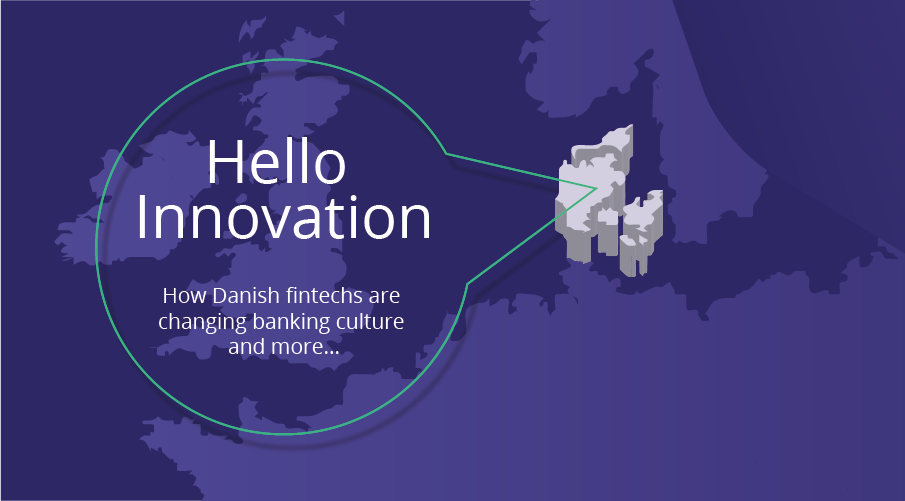January 28, 2021 | 5 min read
Innovating the Nordics: a spotlight on Danish fintechs



In Marqeta Europe’s virtual tour of the Continent so far, we’ve spoken to innovators in France and Spain. For our next visit, we felt it was time to head north to the forward-thinking Scandinavian market of Denmark. Here we enjoyed a cosy yet productive coffee shop chat with local fintech experts Kristian T. Sørensen of Norfico and Katrine Bak Primdahl of The Grit. We wanted to know how the Danish landscape was shaping up in turbulent times, where the innovation hotspots were, and what lies over the horizon. Here’s how the conversation unfolded:
Scandinavian countries are often admired for their enlightened, innovative approach to business and society. How does this relate to the fintech and banking landscape?
Kristian: I’ve been in financial services in Denmark for around 20 years, and have seen online banking evolve from a PC, modem-driven, dial-in experience to fully mobile platforms. But the credit can’t all go to banks for being innovative. Like other parts of the world, banking culture is being changed by the existence of digital innovators, and it is only in the past couple of years that we have started to see banks begin to open up. For too long, banks thought the digital experience was essentially about putting a spreadsheet in a browser. But today’s consumers want something completely different to that, and this is why banks are now hiring non-bankers to drive change. It’s an exciting time for sure.
Katrine: Agreed. But there’s a two-way street when it comes to innovation. Yes, the established banks are opening up, accepting collaborations and moving with the times. However, there’s still so much learning to do amongst challengers. Digital banking propositions need to offer more than, say, being on a social media channel favoured by young people. Indeed, mere social media presence is not enough — it is expected by customers of all ages. The key question is, what is the real value-add from the neobank that traditional banks don’t offer. There’s a need to find a way to broaden product offerings to make neobanking sustainable and profitable. Yes, it’s fantastic that challengers have been able to capture a young market, but they now need to convince older generations to follow suit.
It sounds like two forces in the market are converging. How do you think this will play out for Danish fintechs?
Katrine: It’s going to be all about collaboration between the two sides. Banks want to control everything, which is not possible, but they can curate a better financial experience by bringing together different players in the payments ecosystem and forging partnerships with innovators. For instance, some banks have invested in fintechs and actively promote the fact that they work with fintech partners to provide a better customer experience. This realisation is bringing these forces together. I also think that because many Danish fintechs have excelled in creating solid B2B2C products, they’ve made themselves attractive for partnerships. Good examples are robo advisors for wealth management and automated investment tools.
Kristian: Yep, I think this is true. Fundamentally, banks are conservative and not too experimental. This is as it should be, because they underpin the economy and there is a need for stability — it’s also how long careers in banking are built. However, the banks can’t stand still and it’s primarily by working with and supporting fintechs that they can deliver what today’s consumers demand. Like you say, that B2B2C model serves this culture very well.
So what do you think really stands out about Denmark from a payments perspective?
Kristian: It has to be the way we’ve embraced the cashless society. Apart from rough sleepers, pretty much every demographic has said goodbye to hard currency and we’re now at the point where grandchildren are educating grandparents about cards and mobile payments. This is counterintuitive but it’s true. I think the reason behind this phenomenon is simply down to the fact that the Government has demonstrated the benefits of a digital society and is generally very optimistic about new technology, which has helped to pave the way towards an almost cashless society. I can see why rough sleepers prefer cash, but advances in biometric security and spend controls are making card technology more appealing and beneficial to this audience as well.
Katrine: The drive to totally cashless transactions is happening across the developed world, but it’s a trend that has been led by Scandinavian countries. In Denmark, we’re now at the point where there is virtually no cash and few bank branches with cash disbursement capability left.
Kristian: That’s right, the banks are also gradually warming up to cryptocurrencies, and we see successful crypto- and blockchain-focused companies coming out of Denmark like the newly crowned unicorn Chainalysis, whose founder and CEO is Danish.
If Denmark is almost at a state of cashlessness, where do future opportunities lie for innovators?
Kristian: The fintech sector has exploded in recent years. We’ve gone from a handful to more than 150 businesses in Denmark pushing the boundaries for financial services in a very short space of time. It’s perhaps surprising then that we’ve got some way to go to fully realise the benefits of data to really tailor financial consumer experiences.
Katrine: There’s definitely a need for investment in services aimed at enhancing the end consumer experience. And we need to take payments from being a standalone product to a feature within a wide range of platforms. We also don’t have a culture around loyalty schemes, coupons, and discounts like there is, say, in the U.K. This is ripe for transformation, particularly at a time when COVID has squeezed incomes. Using data to offer targeted deals has the potential to benefit both merchants and the end consumer.
Kristian: I also think we’ll see a move towards greater asset tokenization, democratising access to investments in products, services, and experiences like classic cars, collectable art, and fine wine to name but a few. Fintech is just the start.
*The views and opinions expressed in this blog are those of the respective respondents and do not necessarily reflect the views or opinions of Marqeta.
To continue exploring fintech innovation around the globe, read:* Hola innovation: how Spain is becoming a European fintech hub* C’est digital: meet France’s B2B banking innovators
